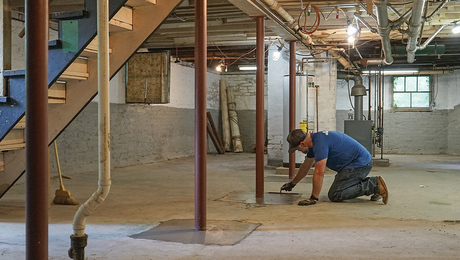New Products at West Coast Green 2008
After walking the floors of West Coast Green 2008, we came back with these standouts
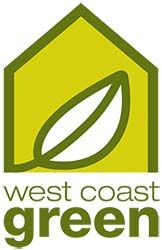
HardieWrap Weather Barrier
Love ’em or hate ’em, synthetic housewraps are here to stay, and James Hardie is the latest to roll their own. Best known for their fiber-cement products, the company says HardieWrap can be used under their HardiePlank siding or any other exterior-surfacing material. The company also makes out smaller rolls of HardieWrap for flashing, flexible flashing tape, and traditional seam tape.
Builder’s Benefit: According to the marketing literature, the extra thickness of HardieWrap prevents tears during installation. Time (and builders) will let us know if the product is a standout or just another advertising opportunity.
The Deck Clip
Fine Homebuilding has promoted rain screens for a pretty long time, so you can imagine our excitement when we found someone making a living selling a rain-screen product. That someone is Jim Guffey of Perry, Kans. He invented the marine-grade aluminum clip marketed by his specialty lumber company, Woodhaven Inc.
Here’s where the story gets interesting: Jim’s decking customers wanted hidden fasteners, but the plastic ones available were too flimsy and the metal ones on the market too expensive. So after a year, he developed the aluminum Deck Clip. Because rain-screen fasteners aren’t that different, he adapted the design to work with an integrated siding system.
The basics of the system include 3/4-in. by 3-in. rot-resistant furring boards with pilot holes, the aforementioned rain-screen clips and screws, FSC-certified factory-finished siding, prefabricated window and door trim, and corner boards.
Builder’s Benefit: Because the FSC hardwood siding attaches using clips, there are no nail holes to color-match with putty. And once you get the furring strips level and plumb, it’s hard to misalign the siding.
RooGlue
If you are looking for formaldehyde-free glue (and who isn’t?), then check out RooGlue’s EcoClear. The glue has zero VOCs, dries clear, and according to the company, bonds most anything from wood to stone. It’s available direct on the company’s Web site. (An 8-oz. bottle lists for $6.29, plus shipping.)
Builder’s Benefit: Although the company logo prominently features a kangaroo, we’re pretty sure that no marsupials were harmed in the manufacture of this product.
Integrity Block
One of the biggest problems with industrial mining is that machines remove a tremendous amount of material for very little net product. The folks at Integrity Block realized this and came up with a concrete-style block that contains up to 50% preconsumer recycled content that comes from industrial-mining waste.
The blocks come in three colors (gray, tan, and reddish) and in a variety of shapes, sizes, finishes, and bond beams. An interlocking landscaping block is also available.
Builder’s Benefit: Integrity Block meets the ATSM C-90 standard for load-bearing concrete masonry units and can be used in place of traditional concrete block. That’s valuable if you are looking for an area to boost LEED credits.
Blow-in Fiberglass Insulation
By now, most everyone has seen photos or video of contractors installing spray-foam or loose cellulose insulation. The people who sell you these products would have you believe fiberglass insulation is history.
But here’s a twist: Fiberglass insulation can be blown in, too. According to the Blow-in-Blanket Contractors Association (BIBCA), the technique was developed nearly 20 years ago. BIBCA is hoping their Blow-in-Blanket System (BIBS) will become a household word, and beyond that, a product with greater market saturation.
Blow-in fiberglass starts with sand, which is spun into fiberglass. The finished product looks like cotton, and BIBCA-certified installers are limited to using Johns Manville, CertainTeed, or Knauf Insulation. A mesh blanket is stapled to stud, joist, and rafter bays to contain the insulation. R-values range from R-13 (2x4s) to R-23 (2x6s) all the way to R-47 for 2x12s.
Builder’s Benefit: Because the product goes on dry, unlike wet spray cellulose or spray foam, there is no wait time to install drywall. BIBCA also says that testing backs up their claim that BIBS won’t settle, or support mold or moisture.
More Sustainable Countertop Choices
Fine Homebuilding assistant editor Rob Yagid wrote “Amazing Countertops” less than a year ago, and if he did the same article today, TorZo Sustainable Surfaces would certainly be mentioned. These unique counter materials are made from manufactured and agricultural by-products, including wheat straw and sunflower-seed hulls, and recycled wood.
Builder’s Benefit: The material can be worked with standard woodworking tools, thereby avoiding the need for special router bits and sawblades.
Fine Homebuilding Recommended Products
Fine Homebuilding receives a commission for items purchased through links on this site, including Amazon Associates and other affiliate advertising programs.
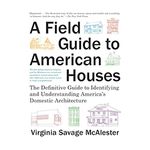
A Field Guide to American Houses
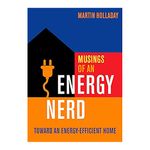
Musings of an Energy Nerd: Toward an Energy-Efficient Home
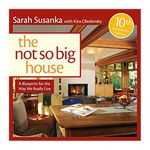
Not So Big House
















